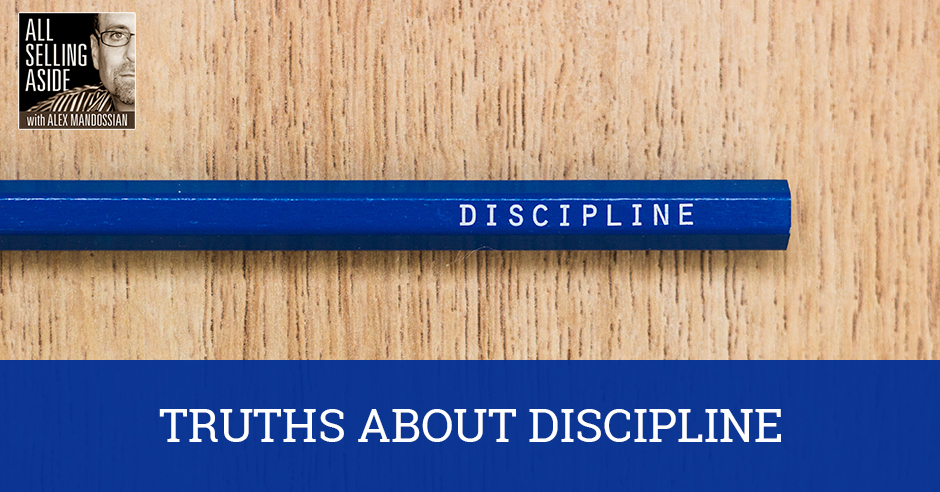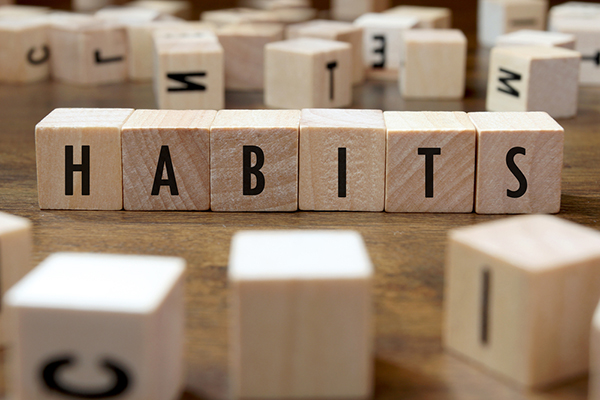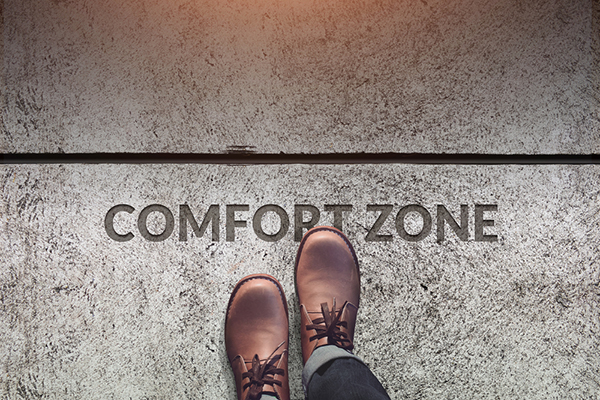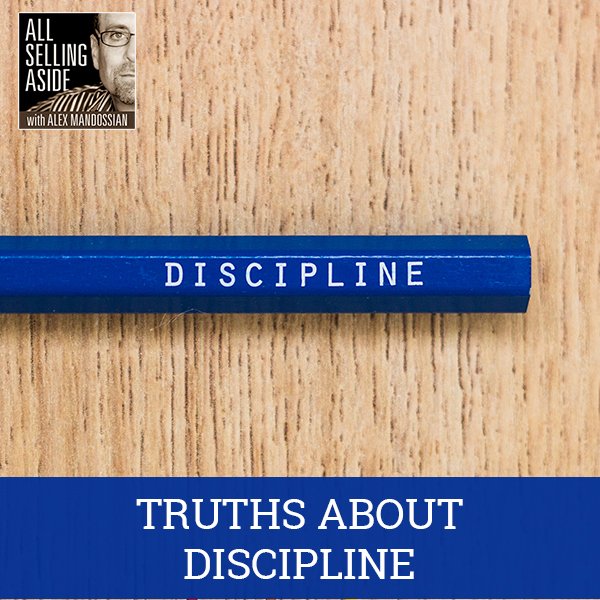
What are the truths about discipline? In this episode, Alex Mandossian dives into the truths about a discipline that will make you an ethical influencer. Learn why discipline is only necessary when you’re shaping a new habit as Alex talks about the four levels of consciousness and how to identify them. He goes further to discuss why each level is relevant to your learning style and to developing discipline into a habit. Lastly, although it seems counterintuitive, learn why getting started requires less willpower than getting it done.
—
Listen to the podcast here:
Truths About Discipline
In this episode, you’ll learn three key insights which I believe are critical to making you an ethical influencer, which is a learnable skill. In this episode, you’ll discover, number one, why discipline is only necessary when you’re shaping a new habit. We’ll get into that.
Number two, you’ll learn how to identify the four levels of consciousness and why each level is relevant to your learning style and developing discipline into a habit. Number three, you’ll learn why getting started requires less willpower than getting it done.
This is counterintuitive because getting started, if that involves discipline, many people would say it requires more willpower, but I’m going to show you why it does not. It requires less than to complete. Lean in and read carefully because this episode could have a significant impact on how you can win the hearts of others with total and absolute certainty.
—
Lessons On Habits From Space Travel
When a rocket ship blasts off from Earth, it could be Cape Canaveral or any launching pad in the United States. Wherever it launches from, if it’s going to the moon and it’s going against gravity, during the first 75 miles into space of its journey, it uses up about 85% of its fuel. If the moon is about 239,000 miles away, over a quarter-million miles away, that’s round trip over 500,000 miles.
If that’s the case, over 85% of the fuel is used up as the rocket is going against that pool of gravity through the Earth’s atmosphere where it’s pulling it down. It only needs 15% once it’s outside of that 75-mile range to get to the moon and back to Earth again where gravity is pulling it in, and it gains the momentum. There’s no friction in space, but all the discipline for that rocket is required to establish the long-term habit of momentum going to the moon and coming back.
Discipline is overrated as a need. You don't need constant discipline once you have shaped that behavior into a habit. Share on XThere’s the analogy because this is the truth about discipline. This is episode number 75 and one of the truths I believe in, you don’t have to believe what I say, but I believe discipline is overrated as a need. You don’t need constant discipline. Once you have shaped that behavior into a habit. Let’s take working out. You need the discipline to work out if it’s not part of your daily regimen or ritual.
If you work out every day, five days a week and take a couple of days off, perhaps over the weekend and start again, you’re not starting from scratch, you’re still out in space. There’s less gravity pulling back on you because you have that momentum of the habit where it becomes consciously competent or unconsciously competent. You’re in flow but if you take two weeks off, then you’re out of the habit of going into the gym. This goes for education, dieting, and any habit.
Discipline I believe is only required in the beginning because you’re going against gravity. As a result, you’re being pulled back until you reach the long-term habit. You no longer need those rocket boosters of discipline and like on a rocket ship, they’re thrown away. Instead of going into the ocean, they evaporate into the ethers.
I don’t know if you’re buying what I’m saying but here’s what I do know when you learn something, I will tell you that discipline is necessary when you shape a new habit. Once a habit takes over, you don’t need as much discipline to start again and again.

Truths About Discipline: Discipline is necessary when you shape a new habit, but once a habit takes over, you don’t need as much discipline to start again and again.
Four Levels Of Consciousness
When you look at the four levels of consciousness in learning anything and that could be learning a skill such as sales, an ethical influence which is what we teach here, how to put up a website, eating well, traveling without being exhausted, sleeping well, going to the gym or being in a relationship, there are four levels of consciousness I want you to be aware of.
At the lowest level, at the ground level, it’s unconscious incompetence. It’s like you don’t know that you don’t know. That’s total ignorance so that’s a blind spot. When you have a blind spot, there’s not much learning that can be done. The goal is to get all of the stuff that you want to learn out of that blind spot quadrant and get it to the next level, which is the learning level. Level two is conscious incompetence.
Think about this, whether it’s riding a bike, programming or maybe working out, you’re not fit yet. Conscious incompetence means you’re consciously learning but you’re not competent yet because you still need the discipline to get started. Getting a flywheel started, Jim Collins talks about in many of his books, requires lots of energy and that’s the discipline. Conscious incompetence means you’re at the learning level. It requires lots of humility.
When you’re learning a new sales strategy, if you’re learning a new marketing funnel strategy like we have with the free book funnel, it takes time for you to learn it. Once you’ve learned it, you go from literacy to fluency and eventually, mastery. I believe mastery is overrated. If you’re fluent at something, that’s good enough.
If you know 500 Mandarin words and went to Beijing, you’re not going to be accepted there because 500 words, whether it’s Mandarin or even Cantonese, which would be in Hong Kong, is not enough to be accepted no matter what you look like. If you know 2,000 words, you’re not literate. You are fluent. Four times as many as it takes.
In my opinion, if you do immersion, it takes about 2,000 hours to learn that many words, sometimes more. If you have the discipline to do it daily, it becomes a habit and it could take less. I believe it takes less than 500 hours to be literate. For mastery, it takes 10,000 hours. It takes five times as many hours. They say to be mastering something than to be fluent at something. Why not be fluent at five different things than to be a master of one?
I don’t think you’ll be a Jack of all trades as they say, because that’s about not even being literate. I’m not talking about underachievement through over motivation, which my friend Darren Hardy calls the over motivated underachiever. That’s not what I’m talking about. If you’re fluent in five languages, isn’t it better to be fluent in five languages than to be a master of one? I believe it is. Fluency is a level of excellence that you’ll be accepted as one of those people within that community.
Level one is unconscious incompetence. That’s complete ignorance. Number two is incompetence. You’re still in the atmospheres. Conscious incompetence, that’s learning and you have to pull up gravity from you. You still need the discipline to do it. When it becomes a habit, it’s conscious competence. You’re doing and you’re teaching. If you teach it, then that gets you to a fluent state and fluency is unconscious competence. That’s flow.
When you see an athlete, musician, marketer and a professional speaker, they’re in the flow. That’s unconscious competence. That’s out of the atmosphere. The first three levels, if you play with me with the analogy, requires discipline. It has a pull of gravity.
Conscious competence is where the air gets thin and you use up less fuel. Now there’s the joy of teaching where you’re reimbursing that willpower that is expandable. It’s coming and recycling back because you get the satisfaction of watching a student light up as their eyes light up.
Unconscious competence you can’t teach because teaching is a little bit more analog. This is where you go digital. Do you think Michael Jordan can teach what he did? First of all, if he had the physical apparatus to do what he did, I don’t think he could teach because you’re not thinking of every little thing along the way.
Commitment produces passion. Passion does not produce commitment. Share on XLionel Messi, the great footballer, or soccer as we call it in the United States. It’s tough for him to teach another footballer what to do. I know it’s the same with rowers and cyclists. It’s not only their physical fitness. When they’re in flow, they get into a zone and it’s such a habit that they’re unconsciously competent. I believe discipline is required for levels 1 and 2. I believe you only get out of the atmosphere at level three, which is conscious competence where you’re teaching.
There’s less pull on you and it’s a habit now. Level four, you’re in deep space. You’ve got to come back so you can teach others. That’s why it’s so sacrificial for someone who is flow-based and he’s a good athlete or musician or whatever. They have to go down one notch to teach. I do that a lot when I’m teaching professional speaking on stage.
Selling through storytelling, because I have to sacrifice unconscious competence when I’m in the flow and come down to the more digital and more wooden conscious competence level of teaching. It’s worth the sacrifice because I love watching a student’s eyes light up.
That’s the four levels of consciousness. Those are the levels of consciousness of learning. How people learn is they do it mentally, emotionally, physically and spiritually. Those are the four different quadrants of consciousness, but the levels of learning in consciousness are the ones I gave you.
Habit, Commitment, Passion, And Willpower
One thing about the power of habit, if you have habits during the day, and those are things you do and don’t do, watching TV can be a habit. Not reading or writing is a habit. It’s a ritual or an anti-ritual and it’s as natural as breathing. Breathing is about flow.
Your heartbeat is about flow. Your blood circulating through your body is about flow. This is the sympathetic and parasympathetic nervous system. It’s inflow. When it gets out of the flow, you’re in the hospital but the key is commitment. It’s not passion and I’ve mentioned this in many other episodes. Commitment produces passion. Passion does not produce commitment.
Passion is good but I know a lot of passionate people who are unhappy, not getting what they want, and borderline suicidal. There’s a lot of fire in the belly but there’s no level of commitment and that’s what you need to get out of, that disciplinary zone, and get more into the habitual zone. I believe, and this is controversial maybe to you as one of my readers, discipline is only required when there’s an uncomfortable shift in the beginning in behavior.
I don’t believe you need more willpower. You need more commitment. You expand as much energy when you’re in the discipline. I don’t think it takes more units to have willpower, but I do believe that the commitment to continuing even if it feels uncomfortable. Feeling uncomfortable is not willpower. Willpower is the number of units you have to complete the job. The less willpower you have, the more difficult it becomes throughout the day.
If you hit the wall at, I don’t know when your wall is but mine is around 4:00 PM or 5:00 PM. If I’ve been ignoring my diet or I hadn’t worked out, I hit the wall and my willpower goes down. I rejuvenate it. I don’t make it young again. There are a finite number of energy units, which I call that willpower and you’re granted that every single day.
Every new disciplinary action, if you do multiple different actions, switch tasks, some people call it multitasking, but you’re switching. I believe that exhausts more willpower because when you start something new, that takes out more willpower because you’ve gone from one part of your brain to the other.
If you’re switching back and forth since you need to get it done and completed, otherwise you’re not a finisher, it’s going to take more willpower. If you’re trying five things at once, switching back and forth to complete one thing, starting and completing and getting it done is starting takes less willpower than getting it done because you have less at the end.
However, if you’re switching back and forth, you’re using different parts of your brain and you know that whether it’s doing customer service, selling to new prospects, writing or learning that requires literally not figuratively different parts of your brain. As a result of making those synaptic connections, it expands willpower.
Here’s what I believe about willpower and many people disagree with me. Some people think to do tasks that are easier in the beginning to build momentum. I disagree. I believe you get to discipline. You know gravity is going to work against you. You stay committed and do the hardest task first. That’s what I do. When I do the hardest task first, that’s lifting 100-pound weight and with the other tasks, it’s me picking up a ten-pound weight.
If I picked up ten pounds first and I tried to pick up 100 pounds second, that 100 pounds feel heavy. If I pick up 100 pounds first, I have more willpower and strength. I pick up that 10-pound weight and it feels lighter to me. I believe people have two ways of looking at it. Go after easy ones and build momentum. The problem with that is you’re expending willpower and chances are you’re switch tasking.
If you do the hardest task first, the thing that you don’t want to do but do it in the beginning, once you’re done with it, that builds even more momentum. You’re out of that atmosphere and you don’t have gravity working against you and you expend fewer units of willpower for the less hard tasks or the easier tasks. Energy and willpower are finite. I believe you do the hardest things first.
If you’re doing prospecting and that’s hard for you, it requires more discipline. Do that first get it out of the way. Test yourself. If you do the easy ones, you may not get to the hard ones later on and you need to do the hard ones. Scary work pays best. Another Darren Hardy saying is, “Scary means hard so do that first.”
Alexism: Expand Comfort Zones
The Alexism for this episode, and I hope you got it and I touched you at least to see things a little differently, is wildly successful entrepreneurs don’t burst through their comfort zone. They instead expand their comfort zones. Getting started is the key and finishing what you get started. That’s the key so that you have momentum built in one part of your brain.
Here’s a quick review of the insights you and I rediscovered. I don’t think I taught you anything new, maybe a new way of looking at it. In this 75th episode of All Selling Aside, remember, these insights will only work if you apply them.
Number one, we talked about why discipline is only necessary when you’re shaping a new habit. Once you have a habit and if you keep doing that thing, you don’t need discipline. Unless you stop and you have to start with discipline again because you slow down and you’re not used to it.
Number two, we identified the four levels of consciousness and why they’re so relevant of going from discipline, which is in the atmosphere, pulling and dragging you back, because you’re going against gravity to outside the atmosphere. You need little fuel outside of your proverbial atmosphere. For the earth, it’s about 75 miles. You can land on the moon and come back over 500,000 miles on 15% fuel. Isn’t that the way you want to do it?
Don’t you want to do the hard things first, get out of the atmosphere, use up all your fuel in the beginning, and you can cruise because you got the hardest thing done first. Getting started requires less willpower than getting things done completely. That requires lots of willpower, especially when you’re switching back and forth to different types of tasks. The biggest challenge people are focusing on productivity is when they must focus on priority.
Maximum results in minimum time are productivity, maximum productivity with minimum effort is the priority. Remember, these insights will only work for you if you work them. You know that. Please make sure you execute it. Maybe you do it or you assign someone to do it with in a certain timeframe.
Energy and willpower are finite. Share on XWhatever you learn at All Selling Aside, if you do these things, I’m doing it as a public arrangement and a public service for you because it doesn’t cost you anything. If you do these things, your future will look bigger, brighter, and you’ll create it on your own terms. I want you to get excited about thinking about that.
Speaking of reviews, if you’ve already given me a review on iTunes or Stitcher, get an index card and write down your single biggest takeaway or a-ha moment from this episode. That way you can revisit it at a later time. Maybe a few words or one word. If you haven’t given me a review, then please go to iTunes and write your biggest a-ha from this episode in the review section.
Don’t review the entire show. Give me you’re a-ha moment for this episode in the review section or another one if you prefer another one. It’ll mean so much to me because once you do that, iTunes will ask you to rate it and I hope I’ve earned five stars from you. I can’t force it but, I hope I’ve earned that through the content that I’ve delivered here. When you review it, you rate it and you’re asked to subscribe to it. You can go 3 for 3 and that way you set it, forget it and get the notices once a week.

Truths About Discipline: Wildly successful entrepreneurs don’t burst through their comfort zones, they, instead, expand their comfort zones.
This is many years of my sales and marketing know-how put into 25 minutes a week. The review will take three minutes out of your day but what you declare could provide you and others reading it a valuable learning lesson. Go to AllSellingAside.com/iTunes and remember, the more reviews, subscriptions, ratings I have, it’ll move the show up in the rankings and more people can benefit from it. Especially, there are many people who hate to sell.
One final gift in our honor of the 75th episode, is a physical copy of my Amazon bestselling book, Alexisms. What I believe that’s even more important is a free video tutorial of the most reliable marketing funnel that triples the revenue of any physical offer when you’re giving it away for free and they’re paying for shipping and handling like a free book, CD, DVD or some sort of sample.
You can experience it and get the video tutorial sent to you immediately after you opt-in at MarketingOnline.com/book. This is the show dedicated to making you an ethical influencer because it is a learnable skill. You will bring more certainty into your personal and professional life when you learn how to influence yourself and others in your life ethically.
Scary work pays the best. Share on XPlease do whatever it takes to join me in the next episode because our topic is called The Power of Stick Strategies. That’s when the sales not only stick but you get greater lifetime value without even selling. I encourage you to invite a friend. I’ve done two courses on this topic with my dear friend, Joe Polish, who runs a mastermind that costs $25,000 and $100,000 called Genius Network and GeniusX.
Invite a friend, colleague or study buddy to All Setting Aside. I can’t wait to connect with you on the next episode to teach you the Power of Stick Strategies. It’s going to be super fun. It’ll be an episode that you will remember for a while. It will impact your business and I want you to join us with your study buddy. It’s more fun to study with others than to study alone.
Links and Resources:
- Alex Mandossian
- Alex Mandossian Fan on Facebook
- Alex’s Friday Live events
- MarketingOnline.com
- Marketing Online 4-Part Video Training Series
- Alex Mandossian on YouTube
- Alexisms by Alex Mandossian
- All Selling Aside on iTunes
- Alex Mandossian’s free live Friday show
- Lionel Messi
- All Selling Aside Episode 74 – Is Passion Over-Rated?
- read – Previous Episode
- iTunes – All Selling Aside Podcast
- Stitcher – All Selling Aside Podcast
- Alexisms
- MarketingOnline.com/book
- The Power of Stick Strategies – Next Episode
- Genius Network
- GeniusX




